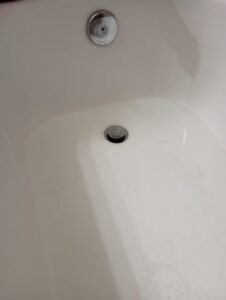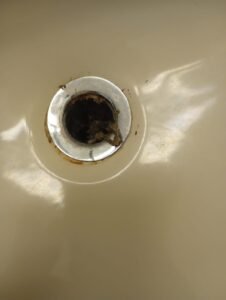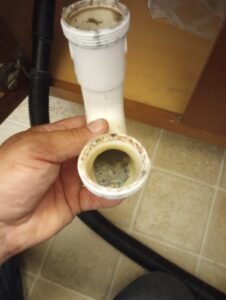Top 7 Home Remedies for Clogged Drains
Dealing with a clogged drain is a common, yet frustrating, household issue. Whether it’s a slow-draining sink or a completely blocked pipe, the inconvenience can disrupt your daily routine. While some clogs can be resolved with simple home remedies, others require professional intervention. In this comprehensive guide, we’ll explore various DIY methods to tackle clogged drains and discuss when it’s time to call in the experts, like our trusted partners at Plumbing Therapist.
Understanding Clogged Drains
Before diving into solutions, it’s crucial to understand what causes clogged drains. Common culprits include accumulated hair, grease buildup, food particles, soap scum, and foreign objects. Sometimes, the problem might be more severe, like tree roots invading sewer lines.
Dealing with a clogged drain can be a nuisance, but fortunately, there are several home remedies you can try before calling in the professionals. These methods are generally safe for your pipes, environmentally friendly, and can be done with items you likely already have at home.
- Boiling Water: This is the simplest and quickest way to clear a clog. Boil a pot of water and pour it down the drain in stages, allowing the hot water to work for several seconds between each pour. This method is often effective for dissolving grease and soap build-up.
- Baking Soda and Vinegar: A tried and true method, this combination creates a fizzy chemical reaction that can help break down clogs. Pour half a cup of baking soda down the drain, followed by half a cup of white vinegar. Cover the drain with a plug or a wet cloth to contain the reaction and let it sit for an hour or so. Then, flush the drain with hot water.
- Plunger: Often associated with toilets, plungers can also be used on clogged sinks and tubs. For sinks, use a cup plunger (not a flange plunger). Fill the sink partially with water, then use the plunger to create suction over the drain and plunge vigorously.
- Wire Coat Hanger: Straighten out a wire coat hanger, leaving a small hook at one end. Insert it into the drain and use it to fish out hair and other debris. Be careful not to scratch your sink or push the clog further down.
- Dish Soap and Hot Water: This method can be particularly effective for toilet clogs. Pour a generous amount of dish soap into the toilet bowl, followed by a bucket of hot water. The soap can help lubricate the clog, while the hot water can help break it up.
- Salt, Baking Soda, and Vinegar: Mix half a cup of table salt with half a cup of baking soda and pour it down the blocked drain. Let it sit for a few minutes, and then pour a cup of vinegar. Wait for an hour or so, then flush with hot water. The salt adds an abrasive component to the baking soda and vinegar mixture.
- Wet/Dry Vacuum: If you have a wet/dry vacuum, it can be a powerful tool in unclogging drains. Set it to vacuum liquids, cover the vent to prevent a mess, create a tight seal over the drain, and turn it on. It can suck out the clog in some cases.
- Enzyme Drain Cleaners: For a more eco-friendly solution, enzyme drain cleaners use natural bacteria to eat away at organic matter in the clogs. These are safer for your pipes and the environment but may take longer to work and are not effective on all types of clogs.
Precautions and Tips:
- Always be cautious when mixing cleaning agents. Never mix bleach with vinegar or any other type of chemical cleaner to avoid creating toxic gases.
- Use boiling water cautiously, especially if you have PVC pipes, as the heat can soften these pipes and cause damage.
- Regular maintenance, like using a drain strainer to catch hair and food scraps, can prevent clogs from forming in the first place.
- If you’re dealing with a severe clog, it’s best to avoid using chemical drain cleaners as they can sometimes worsen the problem and damage pipes.

When to Call a Professional
Knowing when to call a professional for a clogged drain is crucial. While many minor clogs can be resolved with home remedies, there are situations where DIY methods are insufficient, and professional intervention is necessary. Here are key indicators that it’s time to call a professional plumber:
- Recurring Clogs: If you find yourself repeatedly clearing a clog in the same drain, it suggests a deeper, more persistent issue that home remedies can’t fully resolve. Recurrent clogs often require professional tools and expertise to properly diagnose and fix.
- Multiple Clogged Drains: If several drains in your home are clogged at the same time, it’s a strong indication of a problem with the main sewer line. This is a serious issue that requires immediate professional attention.
- Slow Draining After Fixes: If your drain continues to drain slowly even after you’ve tried various methods to clear it, there could be a blockage further down the pipe that you can’t reach, or even a problem with the venting system.
- Water Backing Up Water backing up in sinks, bathtubs, or showers, especially when using other fixtures like your washing machine or dishwasher, can indicate a blockage in the main line. This situation can quickly escalate, leading to significant water damage.
- Foul Odors: Persistent bad smells emanating from your drains could be a sign of a major blockage or a broken sewer pipe. These odors are not only unpleasant but can also pose health risks.
- Strange Noises: Gurgling sounds coming from your drains or toilet can indicate a blockage in your plumbing system. These noises are caused by air trapped in the pipes and are a sign that water is not flowing freely.
- Water Flooding in Your Yard: If you notice water pooling in your yard, especially near where your sewer line runs, this could be a sign of a sewer line break or a severe blockage, requiring immediate professional attention.
- Use of Chemical Drain Cleaners with No Success: Frequent use of chemical drain cleaners can damage your pipes. If these cleaners are not resolving the clog, it’s time to stop using them and call a professional to avoid further damage.
- Presence of Sewage in Your Home: The appearance of sewage in your home is a clear sign of a serious plumbing emergency. This situation poses significant health risks and requires immediate professional intervention.
- DIY Methods Aren’t Working: If you’ve tried multiple home remedies and the clog persists, it’s time to call a professional. Continuing to attempt DIY fixes can sometimes exacerbate the problem.
Why Professional Help is Important
Professional plumbers have the tools, experience, and knowledge to diagnose and solve complex plumbing issues that go beyond simple clogs. They can also provide insights into the overall health of your plumbing system and offer long-term solutions to prevent future problems. Additionally, professional intervention ensures that the job is done safely and effectively, reducing the risk of damage to your plumbing system and your home.
In conclusion, while many clogs can be resolved with DIY methods, there are clear signs when professional help is needed. Paying attention to these signs and acting promptly can save you time, and money, and prevent potential damage to your home’s plumbing system.

What causes clogged drains?
Clogged drains are a common household issue that can cause a lot of inconvenience. Understanding what causes clogged drains is essential for preventing them and keeping your plumbing system running smoothly. There are several reasons why clogged drains occur, and being aware of these can help you take proactive measures to avoid them.
- Hair: One of the most common causes of clogged drains, especially in bathrooms, is hair. When hair combines with soap scum and other substances, it can form significant blockages in your pipes, leading to clogged drains.
- Grease and Fat: In kitchens, clogged drains are often due to the accumulation of grease and fat. These substances stick to the inside of pipes and, over time, can build up to the point where they cause clogged drains.
- Food Waste: Even with garbage disposal, certain types of food waste can lead to clogged drains. Items like coffee grounds, tea leaves, and eggshells are particularly notorious for causing clogged drains.
- Soap Scum: Soap scum, which is a byproduct of soap mixed with minerals in water, can accumulate in pipes leading to clogged drains. Over time, this buildup can reduce water flow and cause clogged drains.
- Mineral Buildup: In areas with hard water, mineral deposits can accumulate inside pipes, leading to clogged drains. These deposits can be quite stubborn, often requiring professional intervention to clear the clogged drains.
- Small Objects: Small objects accidentally dropped down the drain can cause clogged drains. Even if they pass through the drain, they can get lodged in the pipes and lead to clogged drains.
- Toilet Paper Buildup: Excessive use of toilet paper can lead to clogged drains in toilets. If too much toilet paper is flushed, it can clog the pipes and result in clogged drains.
- Tree Roots: For outdoor plumbing, clogged drains can be caused by tree roots infiltrating sewer lines. These roots can cause significant blockages and clogged drains.
- Foreign Objects: Items like wipes, feminine hygiene products, and cotton swabs should not be flushed as they do not break down easily and can lead to clogged drains.
- Structural Defects: Over time, pipes can corrode, crack, or collapse, leading to clogged drains. These structural issues can cause recurring clogged drains and may require pipe replacement.
Preventing clogged drains involves being mindful of what goes down your drains and regular maintenance. Using drain strainers, avoiding pouring grease down the sink, and regular cleaning can help prevent clogged drains. For persistent or severe clogged drains, it’s advisable to seek professional help to effectively address the issue and prevent potential damage to your plumbing system. Remember, clogged drains are more than just a nuisance; they can lead to more serious plumbing problems if not addressed promptly and properly.
Wrapping Up: Navigating Clogged Drains with Home Remedies and When to Call Plumbing Therapist
In conclusion, dealing with clogged drains is a common challenge that many homeowners face. The top 8 home remedies we’ve explored in this blog offer effective, eco-friendly, and economical solutions for tackling minor blockages. From the natural effervescence of baking soda and vinegar to the mechanical action of a plunger or a plumber’s snake, these methods can be easily implemented using items typically found in most households. They are not only practical but also gentle on your plumbing system, helping to maintain its integrity over time.
However, it’s crucial to recognize the limitations of home remedies. While they work well for small clogs and maintenance, some situations are too complex or severe for a DIY approach. Persistent clogs, water backing up, foul odors, and multiple blocked drains are all signs that it’s time to call in the professionals. This is where Plumbing Therapist comes into the picture.
Plumbing Therapist, with their team of experienced professionals, offers a reliable solution for those stubborn, recurrent, or complex drainage issues that home remedies can’t fix. They bring not only their expertise but also specialized tools and technology to diagnose and resolve your plumbing problems effectively. Their services ensure that your plumbing system is handled safely, reducing the risk of damage and ensuring long-term functionality.
Moreover, seeking professional help from Plumbing Therapist can be a wise decision in terms of cost-effectiveness. By addressing the root cause of the problem and providing a thorough fix, they can help prevent recurring issues, saving you time and money in the long run. Their expertise can also provide peace of mind, knowing that your plumbing system is in capable hands.
In addition to resolving immediate issues, Plumbing Therapist can offer valuable advice on how to maintain your plumbing system, helping to prevent future clogs and other problems. This guidance can be incredibly beneficial, extending the life of your plumbing and ensuring it runs smoothly.
Ultimately, whether you opt for a home remedy or professional assistance, the goal is to maintain a functional, efficient, and healthy plumbing system. Regular maintenance, mindful usage, and timely intervention are key to achieving this. So, the next time you’re faced with a clogged drain, remember the solutions discussed in this blog, and don’t hesitate to call Plumbing Therapist for those situations that require professional expertise. Their commitment to quality service and customer satisfaction makes them a trusted partner in maintaining the health and efficiency of your home’s plumbing system.

